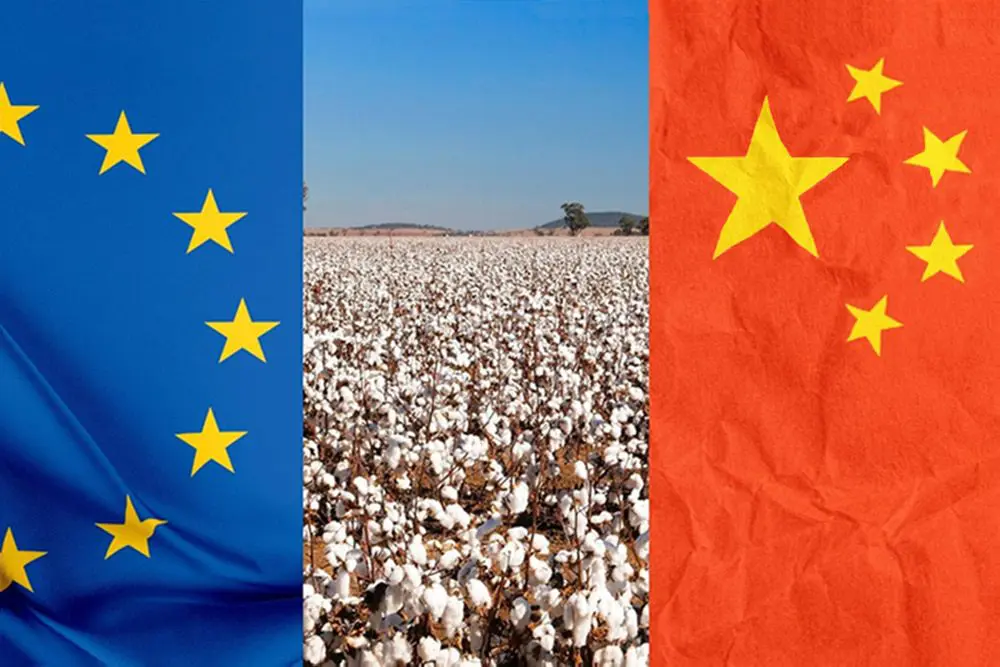On 9 June, the European Parliament adopted a resolution on the human rights situation in Xinjiang, calling on the European Commission “to propose an import ban on all products produced by forced labour and on products produced by all Chinese companies listed as exploiting forced labour.”
In line with this call, MEP Reinhard Bütikofer, chair of the Delegation for relations with the People’s Republic of China, organized a conference on human rights in China at the European Parliament on 13 October, with three discussion panels: China and the CCP after a decade under Xi Jinping, China’s trajectory on socio-economic development and China’s foreign policy.

On the next day, a conference took place at the Press Club in Brussels on the situation of the Uyghurs in China and a possible ban on Chinese goods. [Watch full conference at the end of the article]
MEP Carlo Fidanza (Italy), who was abroad, supported the initiative with a video in which he took a clear position about the attitude that the European Union should adopt towards China.

“The European Parliament has always condemned the persecution of Uyghurs, forced labour, torture, organ harvesting, forced sterilization and the camp system for so-called reeducation. Several strong resolutions have been adopted, they send an unambiguous message to the EU High Representative for its dealings with China,” he said.
He also stressed that the Uyghurs are not the only victims of the Chinese regime. “Christians and Falun Gong practitioners are also suffering from the same repression.”
He added: “The Chinese totalitarian system does not tolerate dissenting voices; it imposes its ideology, using violence and concentration camps if necessary, because it is afraid of losing its control over society.
And he concluded: “When the road is dark, there is no light and one feels alone, we must stand up together, fight with each other and for each other; we must react with courage and strength without giving in to easy temptations.”

Keynote speaker was Ben Rogers, founder of Hong Kong Watch, a UK-based NGO, who said, “This is an incredibly important topic and I warmly welcome the EU proposal on a possible goods ban. This is a very good start. The US has already gone down this path to ban imports made by forced labour. I would urge the EU to do the same.”
He also noted that the Uyghur repression is increasingly recognized as a genocide and added: “We live in a society where we want things as cheap and quick as possible but there is a growing awareness of the problem of slave labour. We need to get information out there so people can make an informed choice and also diversify the sourcing of goods and components for consumer products and not relying so much on China.”
Another contributor, Chris White, a former national newspaper reporter in the UK, said: “There is a general failure of politics around the world. Politicians intend to do the right thing but often it is not concluded. But I must admit that I don’t see the EU succeeding in this proposal on a goods ban because it will come up against fierce opposition.”
And White added: “I have a phone of which key parts were made in China but I have not seen any reports in the media about people not buying goods from China. The public is ill informed and I suspect corporate issues are at play here.”

Gary Cartwright, publisher of EUToday, who organised the debate, also criticised media coverage of the issue, saying, “This is one of the major human rights issues but the British media seem more interested in celebrity news.”
He cited a major IT company’s statement for the financial year 2021 which speaks about “cleaning up its act” regarding its supply chain.
He said: “Another letter to this company’s CEO from the Human Rights Commission in Geneva, despite what the company said about cleaning up its act, says the firm may be involved in the supply chain of goods originating from forced labour.”







